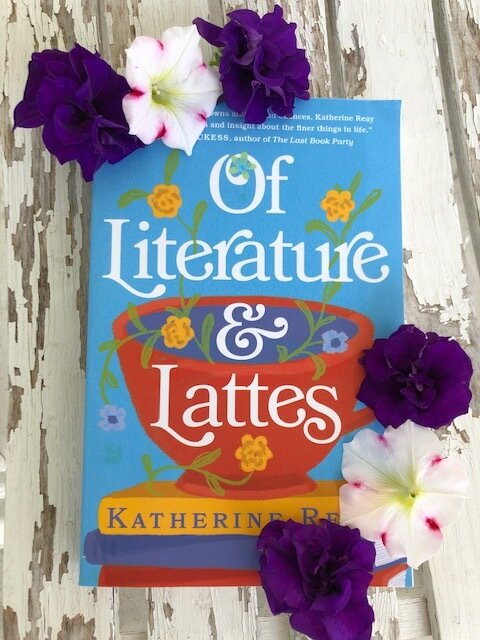Here’s to Always Learning
I read Katherine Reay’s Printed Letter Bookshop shortly after it came out and loved it. I had read several of her other books over the years--I loved the way she wrote based on Jane Austen--but Printed Letter Bookshop stood on its own, in a tiny town near Chicago called Winsome, and was set in a bookstore.
I love books that are set in bookstores.
But outside of that, the book was wonderful on its own, moving and sweet but with just enough punch. So when I found that she was writing a second book set in Winsome, this time centering on Alyssa, a town daughter who comes home humiliated, and Jeremy, a town transplant who struggles to understand his pace in the community, I immediately knew I needed to have it. Of Literature and Lattes had everything I needed in a title--coffee and books--and I couldn’t wait to see if the rest of it measured up.
It so did.
I enjoy Katherine Reay’s writing because she makes important points through literature references. From Shakespeare to children’s books to Steinbeck, her characters understand themselves and each other through reading, which of course is something I can get behind. But I also love her writing because it deals with serious topics, like what we are owed by our families; how we define ourselves and the impact that has; the truth that love, while beautiful, is actually self-sacrificial. The characters are strong and still learning, whether by choice or force, which gives a reader faith that things will work out in the end.
We talk in schools about becoming lifelong learners, but learning is often painful. We want easy answers. We want to have everything figured out. It’s hard to admit that we don’t know it all. In the most difficult parts of our having school at home over the quarantine, I would get my kids to repeat the phrase, “I guess I haven’t learned that yet,” to remind them they weren’t supposed to know everything, and it always made them smile, even if the concept was not simple. But that humility and growth mindset is essential to allowing ourselves the flexibility to become the people we really want to be, and to giving ourselves the grace we need when we make the inevitable mistakes.
That grace, too, must be learned. I never write notes in my novels, but near the end of this one I was scrambling for my pen. The main character, Alyssa, is talking to Janet, who tells her, “You always say numbers tell a story, but it’s not a whole story, sweetheart. We’re more complex than that...You can’t see the whole picture or even how scenes, strivings, events, moments, desires...They all overlay one another...The point is, you do what you can, and the rest, you must now let go.”
It reminds me of the Bible verses on which I’ve been meditating lately, Proverbs 3: 5-6.
Trust in the Lord with all your heart,
do not depend on your own understanding.
Seek his will in all you do,
and he will show you which path to take.
There is so very much that I don’t see in my assumptions about my future, or my family, or my work. Often that’s terrifying. I want all the answers. I don’t want anything else to learn. I just want to know how everything is going to go.
But that was never the plan, or the best idea. My vision is not that strong or whole. I can only see in part. I must walk the paths I see and trust God with the bigger landscape I can’t. It doesn’t mean I’ll always get it right, but I’ll always be seeking him and learning.
And that attitude, as Janet points out, is incredibly freeing.
